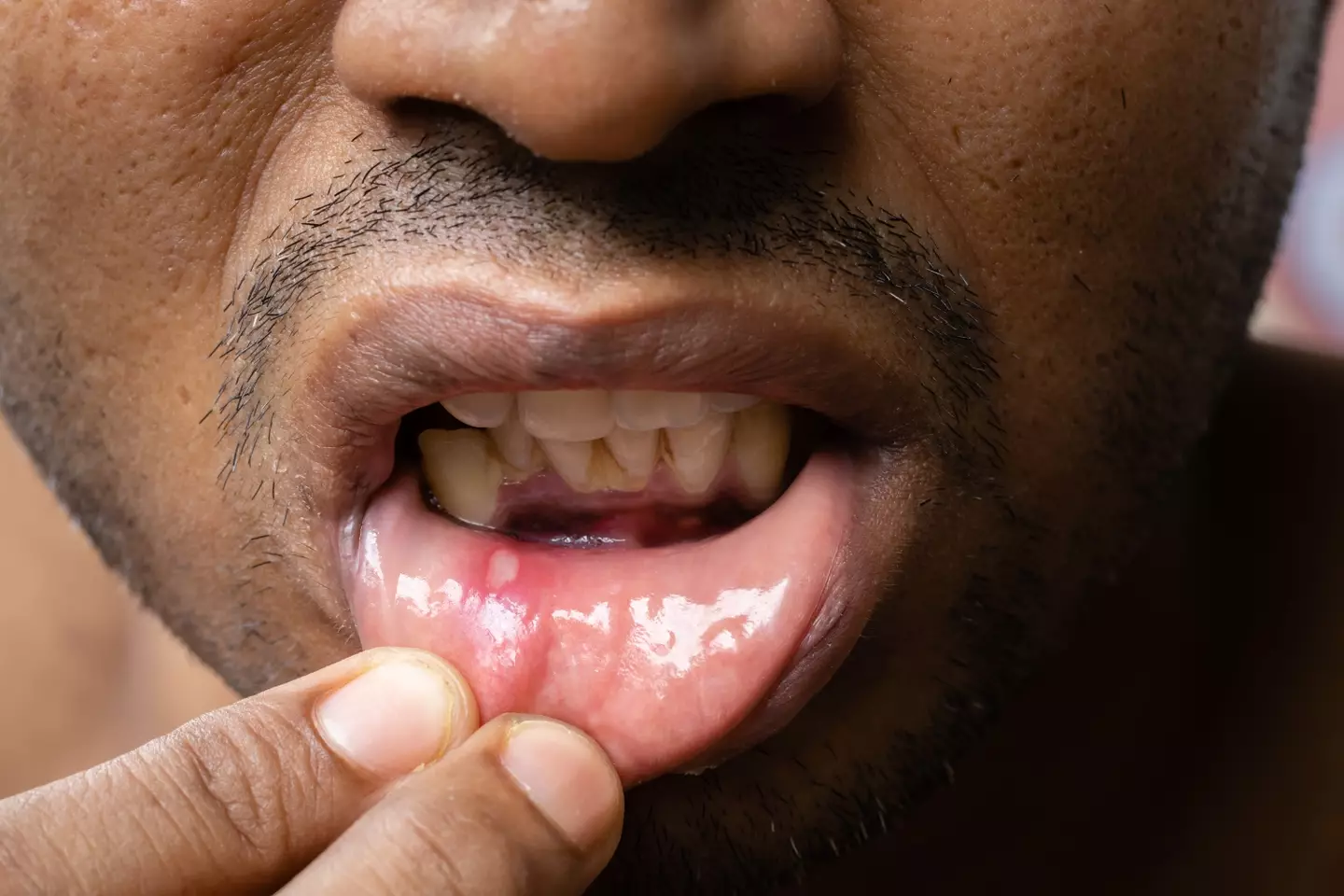A dentist has highlighted a prevalent oral health problem that tends to worsen during the winter months, along with symptoms that might suggest a more serious underlying issue.
The year 2024, despite seeming to pass quickly, has felt long for many, leaving us drained and fatigued as the holiday season approaches. The cold weather doesn’t do our health any favors either.
One particular oral health issue that often emerges with the colder weather is worth noting.

Ulcers can appear any time of year, but they are more likely to occur in winter, according to CareCredit. These particular ulcers are often referred to as ‘canker sores’.
Their website explains: “Canker sores are mouth ulcers that tend to peak during winter months due to the harsh dry air that makes soft mouth tissues more prone to injury and infections.
“This is because saliva is needed to rid the mouth of bacteria and food particles that can cause infections, and the dry air leads to reduced saliva in the mouth.
“Also, the winter season compromises our immune system and leaves us more vulnerable to infections in the mouth, like canker sores.”
So when should mouth ulcers be a cause for concern?

Dr. Andrej Bozic, an oral surgeon at Dentum, told SurreyLive: “Most mouth ulcers heal within 10 to 14 days. If a sore lingers beyond that, it could indicate something more serious, such as oral cancer, an autoimmune disease, or a chronic infection.
“Dehydration and a higher risk of infections during colder months can aggravate mouth ulcers. But any sore that persists shouldn’t be dismissed as seasonal – it’s crucial to have it checked.
“One of the early warning signs of oral cancer is a non-healing ulcer. These are often mistaken for minor injuries, but any ulcer persisting for more than three weeks should be taken seriously.”
There are other symptoms to be mindful of as well.

In addition to ulcers that don’t heal within three weeks, watch for red or white patches in your mouth and any lumps.
Note any swelling or lumps in your neck or jaw or pain in your throat and mouth. This is particularly important if it causes difficulty swallowing, chewing, or speaking.
There are methods to prevent and manage ulcers.

Reducing or quitting smoking and drinking can help prevent ulcers and aid in healing existing ones.
Spicy and acidic foods can exacerbate ulcers, so temporarily avoiding curries or fruit juices might be beneficial.
If you have an ulcer, rinsing your mouth with a solution of warm water and salt can promote healing, and using a soft-bristled toothbrush can help avoid aggravating the tissues inside your mouth.
If you’re worried, it’s always wise to seek advice from a healthcare professional.

